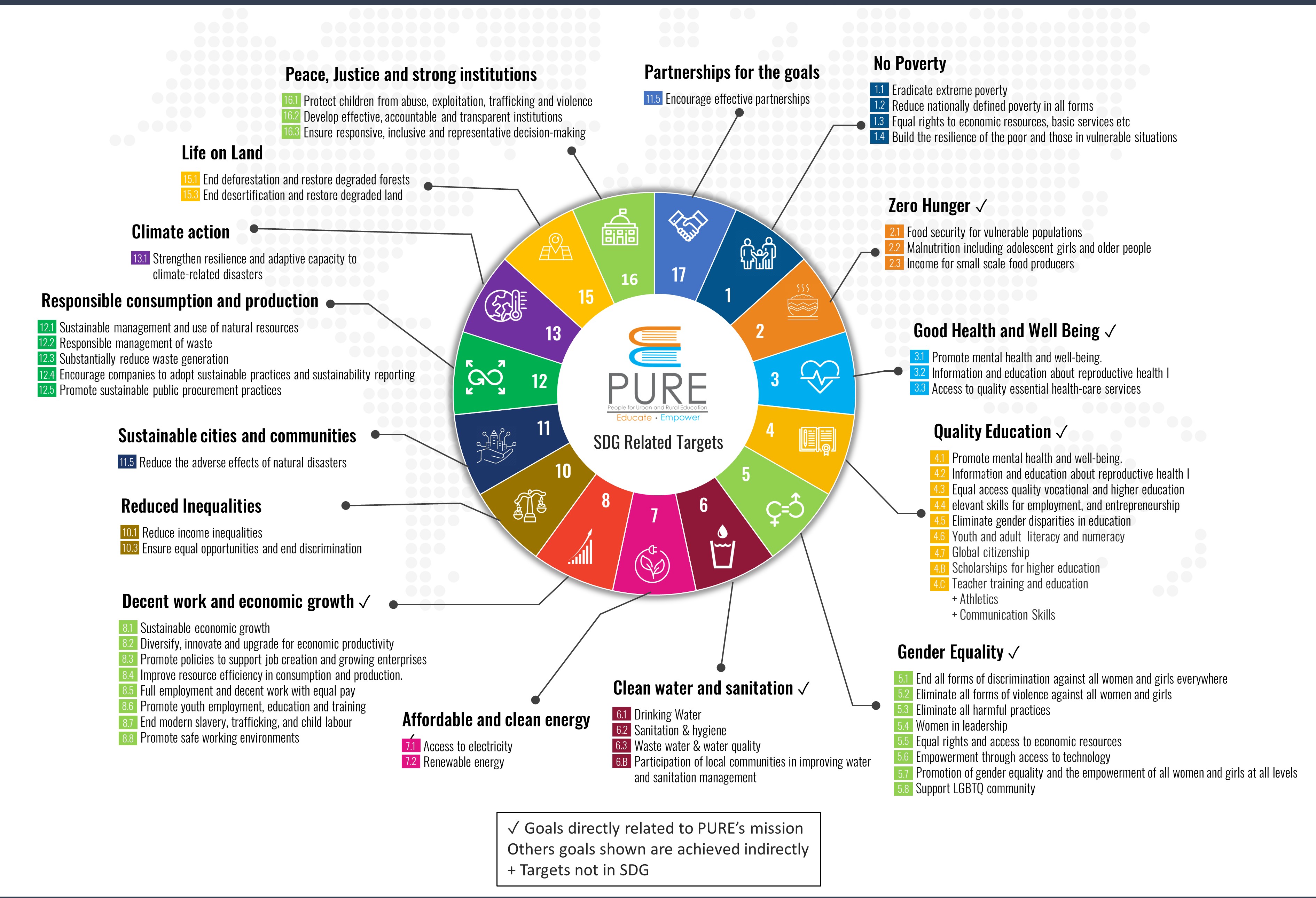






Quis autem velum iure reprehe nderit. Lorem ipsum dolor sit nulla or narjusto laoreet onse ctetur adipisci.
Quis autem velum iure reprehe nderit. Lorem ipsum dolor sit nulla or narjusto laoreet onse ctetur adipisci.

The struggle to ensure that every human, regardless of their nationality gets a chance at enjoying prosperity and peace birthed the development of the sustainable Development Goals by the United Nations in September, 2015.
SDGs are also referred to as Global Goals and the 2030 Agenda. The creation of the goals by the United Nations serves as a collective call to action to end poverty, protect the planet, with a view to ensuring political, socio-economic stability and environmental sustainability all over the world by 2030.
The SDGs are aimed at providing guidance that applies universally to problems faced by the international community. The 17 goals are all channeled towards the protection of the inherent basis of life and planet earth as a whole. The goals also seek to preserve and empower people’s aspirations to prosperity and dignity of life.
The goals are designed in such a way that everyone can contribute, either as individuals, businesses, civil society or government institutions. Also, every contribution creates a ripple effect that impacts the world positively.
The SDGs can be categorized into the following areas: People, Prosperity, Peace, Planet and Partnership.
Some of the SDGs are designed to impact the lives of people in the areas of access to quality education, increasing general life expectancy, reducing infant and maternal mortality rates, turning the tide on HIV and malaria deaths, empowering women and girls towards economic growth and development, etc.
The relevant SDGs related to improving the lives and experiences of people are:
Some other set of SDGs are aimed at eradication of poverty in all its forms, ending all forms of hunger and malnutrition, and making sure people all over the world have sufficient and nutritious food all year.
They are also focused on the promotion of sustained economic growth, higher levels of productivity and technological innovation through the encouragement of entrepreneurship and job creation. This is with the aim of achieving full, productive employment, and decent work, for all women and men by 2030.
In achieving prosperity, some of the goals are directed towards addressing income inequality by improving the regulation and monitoring of financial markets and institutions, encouraging development assistance and foreign direct investment to poor regions.
The specific SDGs related to guaranteeing the prosperity of people all over the world include:
Another set of SDGs are channeled towards protecting the environment, reversing the negative effects of climate change and addressing the challenges of global warming through the expansion of infrastructure and upgrading of technology to provide clean and more efficient energy in all countries.
They are also focused on ensuring that there is safe and affordable drinking water for all by 2030. This is to be achieved through the protection and restoring of water-related ecosystems, then the encouragement of investments in adequate infrastructure, provision of sanitation facilities, and the promotion of hygiene.
The SDGs channeled towards achieving the above goals are:
The SDGs are also aimed at considerably reducing all forms of violence, and work with governments and communities to end conflict and insecurity in countries experiencing same. This is to be achieved by reducing the flow of illicit arms and strengthening the participation of developing countries in the institutions of global governance.
Promoting the rule of law and human rights is also another objective of the SDGs. This is promoted by the Peace, Justice and strong institutions SDG, which is SDG 16.
Partnership for the goals is the SDG 17. It is aimed at enhancing cooperation among partner states. This is to be achieved through coordinating policies to help developing countries manage their debt, and the promotion of investment for the least developed countries.
On the whole, civil societies and Non-governmental organizations will benefit from aligning with the SDGs as it allows for formulation of synergies and new partnerships, provides a benchmark or metric for measuring the success of projects and initiatives of the organization. It also allows the organization access to utilize relevant data to its work. Finally, it promotes a positive reputation of the civil society or NGO.
Quis autem velum iure reprehe nderit. Lorem ipsum dolor sitelit. Cras sapien neqqrue, biben dum in sagittis. Nulla or narjusto laoreet onse ctetur adipiscing.
In Case of credit card ,Transaction in Doller($) will be accepted.
